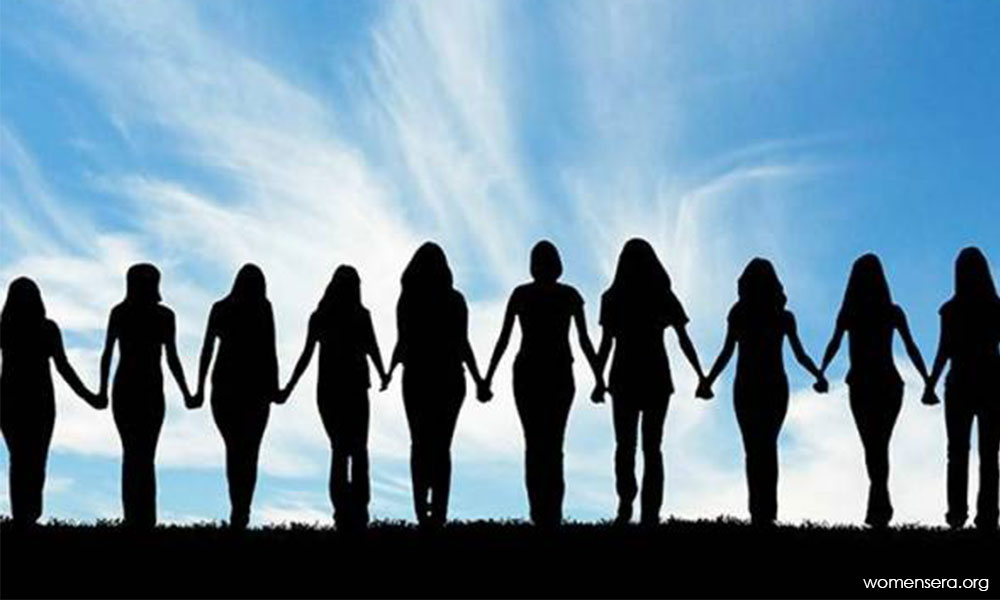
In the last Parliament sitting, the Dewan Rakyat and Dewan Negara unanimously approved a constitutional amendment to (1) lower the voting age from 21 years old to 18; (2) enable automatic voter registration, and (3) lower the electoral eligibility age from 21 to 18.
This means politicians have to take what youths say seriously. Youth now have more opportunity for participation and decision-making.
A critical piece in the machine is the Ministry of Youth and Sports. However, when we hear the words belia and anak muda, we often picture young men participating in football or futsal programmes.
In the light of "Undi18", I hope to see gender parity - meaning, increased inclusiveness of young women. How do we get there? Let’s focus on three areas under the ministry's purview - youth leadership, socioeconomic development and sports.
In 2017, I wrote about Malaysia’s performance in the World Economic Forum (WEF) Global Gender Gap Report 2017. The report measured 4 sub-indexes - economic participation and opportunity, educational attainment, health and survival, and political empowerment.
Since 1957 till the 14th general election in 2018, there were no female prime ministers or chief ministers, 11 female ministers (averaging two per term), and 25 female deputies. This implied that the BN government recognised women’s capabilities but somehow excluded them from top roles.
The 2018 report, published in December, saw Malaysia’s women political empowerment ranking improve from 134 to 131. Post-GE14, Pakatan Harapan has clearly bucked BN’s trend of placing women in “softer” portfolios like the women’s ministry or tourism ministry. Today, our girls can look up to Yeo Bee Yin and her deputy Isnaraissah Munirah Majilis heading the Ministry of Energy, Science, Technology, Environment and Climate Change (MESTECC) or Zuraida Kamaruddin as minister for housing and local government.
How are young women responding? Interestingly, when I, a young female politician, run Facebook advertisements for youth, male-to-female audience engagement generally is 75 to 25 percent. Even for women-related events, such as a screening of “Knock Down the House”, a documentary depicting four working-class women running in the US midterm elections, young female engagement was relatively low.
Despite the social media skew, my interactions on the ground see young women interested in politics, although sometimes hesitant due to the male-dominated political culture or familial concerns. Maybe some encouragement is needed. My colleague Nurainie Haziqah from PKR has founded an NGO called "Girl2Leader Malaysia", which exposes young women to prominent female leaders such as Rafidah Aziz. I myself have three female interns who are university students.
The Fourth Industrial Revolution (IR4.0) is usually spoken of in terms of (1) machines replacing human labour; (2) the impact of social networks. Besides employment parity, the 2018 WEF report looks at Artificial Intelligence (AI) skills, with the global gender gap at 72 percent. It found that women with AI skills are less likely to be in senior roles and less likely to gain expertise in high-profile, emerging skills. It also warns that AI skills gender gaps may worsen gender gaps in future economic participation as AI covers an increasingly in-demand skillset.
In the face of IR4.0, we need to dismantle biases and encourage girls and young women to participate in Stem.
On the social front, social media use poses challenges to young women in terms of harassment and doxing (targeting and publishing of private or identifying information online). We also need to improve access and discourse on female sexual reproductive health and rights so that young women, whether single or married, can participate in the employment market and the public sphere.
Sports is often hailed as a unifying factor for Malaysians. For girls, sports is an empowering factor. In light of Undi18, sports participation and development should be more inclusive of young women.
Encouragingly, this February, minister Syed Saddiq Syed Abdul Rahman announced that one of his ministry's goals is to encourage young women’s participation in male-dominated sports such as football and rugby. In March, the ministry elevated the national women’s rugby team from the fourth tier to the third tier under the 2019 Athletes Training programme managed by the National Sports Council (MSN). This upgrade has provided our girls with monthly allowances and access to all of the ministry's training facilities and expertise, which means increased chances of improvement.
In Selangor, I’ve used some of my assemblyperson's allocation to sponsor kits for our women’s rugby Sukma team. Despite being formed in 2015, comprising of young women with no rugby experience, Selangor bagged silver in Sukma 2018. This July, with the support of the Petaling Jaya City Council (MBPJ) and my office, the Selangor Rugby Union organised a ladies’ sevens tournament also featuring teams from Hong Kong, Singapore and Laos to sharpen new local talent while exposing them to overseas competition.
Former UN secretary-general Ban Ki-Moon once said, “The world will never realise 100 percent of its goal if 50 percent of its people cannot realise their full potential.” To paraphrase, Malaysian youth will never realise 100 percent of their goal if 50 percent of their people – our young women – cannot realise their full potential. Similarly, the goals of Undi18, that is to widen democratic space for youths of all backgrounds to participate, cannot be realised if gender parity is not on the agenda.
To young women, I want to encourage you to take up space, whether in education, the corporate sector or politics. The glass ceiling is for us to break.
Perhaps one day, a second female youth and sports minister (after Azalina Othman) and a first female deputy minister might not be so far away.
The writer, Lim Yi Wei is Selangor state assemblywoman for Kampung Tunku. - Mkini



No comments:
Post a Comment
Note: Only a member of this blog may post a comment.